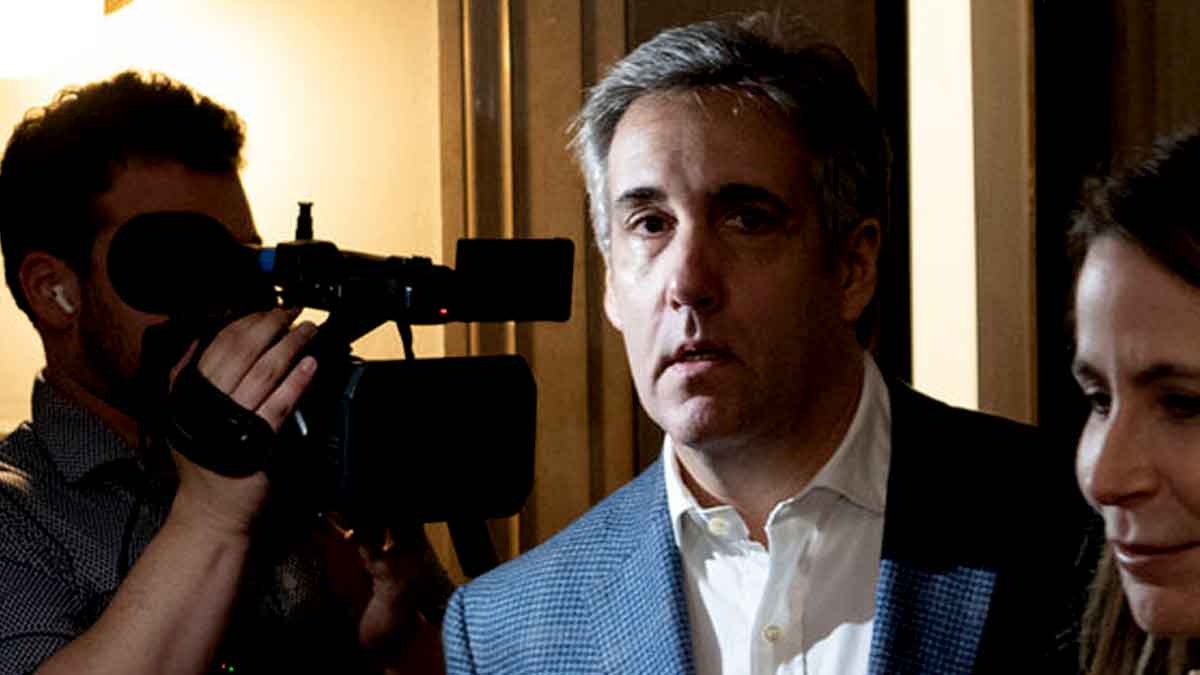- Home
- Billionaires
- Investing Newsletters
- 193CC 1000
- Article Layout 2
- Article Layout 3
- Article Layout 4
- Article Layout 5
- Article Layout 6
- Article Layout 7
- Article Layout 8
- Article Layout 9
- Article Layout 10
- Article Layout 11
- Article Layout 12
- Article Layout 13
- Article Layout 14
- Article Sidebar
- Post Format
- pages
- Archive Layouts
- Post Gallery
- Post Video Background
- Post Review
- Sponsored Post
- Leadership
- Business
- Money
- Small Business
- Innovation
- Shop
Recent Posts
Trump’s Fraud Ruling Could Affect First Criminal Trial

A New York judge’s recent ruling found former President Donald Trump liable for fraudulently misstating his assets’ value. This decision could have significant implications for Trump’s upcoming criminal trial. Judge Arthur Engoron’s ruling bolstered the credibility of ex-Trump “fixer” Michael Cohen, a key witness in the case.
Trump was found to have fraudulently misrepresented his assets’ value on financial statements. This misrepresentation aimed to secure more favorable business deals and inflate his net worth. The state’s case heavily relied on Cohen’s testimony, who claimed Trump directed him and ex-CFO Allen Weisselberg to inflate valuations. Despite Trump and his attorneys’ attempts to discredit Cohen due to his prior conviction for lying under oath, Judge Engoron found Cohen’s testimony credible.
The judge’s assessment of Cohen’s credibility could strengthen him as a crucial witness in Trump’s first criminal trial. This trial revolves around $130,000 in “hush money payments” Cohen made to Stormy Daniels, an adult film actress, during Trump’s 2016 campaign to silence her alleged affair with Trump.
Cohen has testified that Trump instructed him to make the payments, leading to Trump being indicted on charges of falsifying business records by allegedly reimbursing Cohen and concealing these payments. Prosecutors have already prepared Cohen for trial and gathered evidence supporting his account.
Engoron’s ruling ordered Trump to pay $354 million in the civil fraud case, which could increase to $453.5 million with interest. Trump’s criminal trial for the “hush money” payments is scheduled to begin on March 25. He faces 34 counts of falsifying business records, with each count carrying fines of up to $5,000 and a maximum of four years in prison if convicted. However, experts believe he is unlikely to receive a prison sentence as a first-time offender.
Throughout the fraud trial, Trump has attacked Cohen, calling him a “sleazebag and disbarred former lawyer.” Trump and his lawyers attempted to discredit Cohen’s testimony by pointing to his previous perjury plea. Cohen initially admitted to lying to Congress but later clarified that he had not lied because Trump had not directly instructed him to inflate assets.
Cohen, who previously served as Trump’s attorney and “fixer,” pleaded guilty in 2018 to multiple federal charges, including campaign finance violations related to the hush money payments. He has since become one of Trump’s fiercest critics and served a three-year prison sentence.
While Cohen’s testimony was not the linchpin of the state’s case, it played a significant role in sparking New York Attorney General Letitia James’ investigation that led to the fraud lawsuit. Cohen testified to Congress in 2019 about Trump’s asset valuation practices, which contributed to James’ inquiry.
In summary, Judge Engoron’s ruling against Trump for fraudulently misstating his assets’ value could have far-reaching consequences, particularly in Trump’s upcoming criminal trial. The ruling’s impact on Cohen’s credibility as a witness and the broader legal implications for Trump’s financial dealings remain to be seen.
Recent Posts
Categories
- 193cc Digital Assets2
- 5G1
- Aerospace & Defense46
- AI37
- Arts3
- Banking & Insurance11
- Big Data3
- Billionaires459
- Boats & Planes1
- Business328
- Careers13
- Cars & Bikes76
- CEO Network1
- CFO Network17
- CHRO Network1
- CIO Network1
- Cloud10
- CMO Network18
- Commercial Real Estate7
- Consultant1
- Consumer Tech180
- CxO1
- Cybersecurity68
- Dining1
- Diversity, Equity & Inclusion4
- Education7
- Energy8
- Enterprise Tech29
- Events11
- Fintech1
- Food & Drink2
- Franchises1
- Freelance1
- Future Of Work2
- Games141
- GIG1
- Healthcare78
- Hollywood & Entertainment186
- Houses1
- Innovation42
- Investing2
- Investing Newsletters4
- Leadership65
- Lifestyle11
- Manufacturing1
- Markets20
- Media193
- Mobile phone1
- Money13
- Personal Finance2
- Policy567
- Real Estate1
- Research6
- Retail1
- Retirement1
- Small Business1
- SportsMoney33
- Style & Beauty1
- Success Income1
- Taxes2
- Travel10
- Uncategorized8
- Vices1
- Watches & Jewelry2
- world's billionaires428
Related Articles
Trump Moves $4B Stake in Truth Social Parent, Stock Drops 6%
Donald Trump recently transferred his 57% stake in Trump Media & Technology...
By 193cc Agency CouncilDecember 20, 2024House Rejects Trump-Backed Funding Bill, Shutdown Looms
The U.S. House of Representatives rejected a new government funding bill on...
By 193cc Agency CouncilDecember 20, 2024Trump Named Time’s Person of the Year for Second Time
On Thursday, Time magazine honored Donald Trump as its “Person of the...
By 193cc Agency CouncilDecember 12, 2024Meta Donates $1 Million to Trump’s Inaugural Fund
Meta, the parent company of Facebook and Instagram, has confirmed a $1...
By 193cc Agency CouncilDecember 12, 2024















Leave a comment